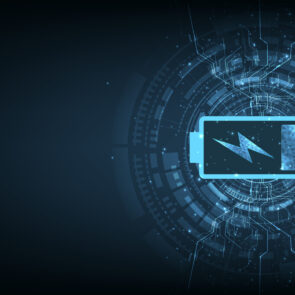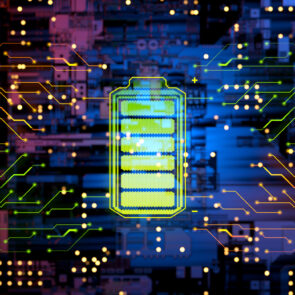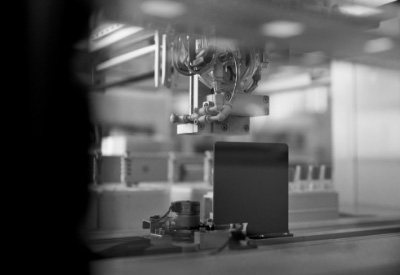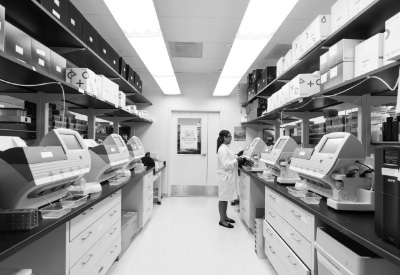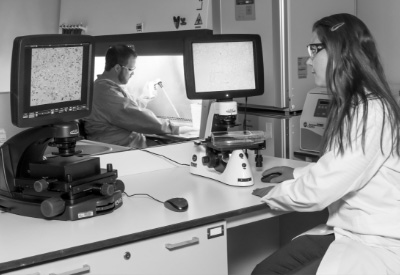July 2025 | Tips & Information
Surviving the Cold: Powering Devices in Sub-Zero Conditions
From the upper atmosphere to the polar ice caps, the harshest environments on Earth—and beyond—share one thing in common: extreme cold. While modern sensors, monitoring tools, and communication devices are built to operate under demanding conditions, keeping them powered in sub-zero temperatures remains one of the biggest engineering challenges. Batteries, in particular, are often the first point of failure.
Traditional battery chemistries suffer from performance degradation in cold temperatures, resulting in reduced capacity, voltage drops, or even total failure, rendering devices useless when they’re needed most. But there’s an alternative: City Labs’ NanoTritium™ batteries, which generate power from a temperature-independent nuclear decay process.
Why Cold Environments Are So Challenging for Batteries
Batteries work by relying on chemical reactions. In cold conditions, these reactions can slow significantly depending on the battery type—and in some cases, stop altogether. Lithium-ion batteries, for example, experience increased internal resistance and reduced ion mobility at low temperatures, leading to:
- Lower voltage output
- Sharply reduced usable capacity
- Sluggish recharge times or inability to recharge
- Increased risk of failure or long-term degradation
These issues become critical in applications where batteries must operate without maintenance or external heating, such as in Arctic research stations, stratospheric weather balloons, high-altitude drones, or deep-space sensors.
For devices in these environments, the battery isn’t just a component; it’s the lifeline of the system. If the battery fails, so does the mission.
A Nuclear-Powered Solution That Doesn’t Mind the Cold
City Labs’ NanoTritium™ batteries offer a fundamentally different approach. Instead of relying on temperature-sensitive chemical reactions, these batteries generate electricity through betavoltaic conversion. This solid-state process converts energy from the natural radioactive decay of tritium into a small, steady flow of power.
Because this process is independent of environmental temperature, NanoTritium™ batteries continue working at extreme sub-zero temperatures, with no drop in performance, no recharging, and no need for thermal regulation.
In fact, independent testing has confirmed it. As described in City Labs’ Battery Testing Overview, third-party validation by Lockheed Martin confirmed the P100 Series NanoTritium™ batteries operated reliably across a wide temperature range, from -55°C to +150°C. This range encompasses the most extreme natural and spaceborne environments, ensuring that City Labs batteries can be trusted in conditions where conventional technologies fail.
This real-world validation is further supported by published research, including a peer-reviewed study on betavoltaic performance under extreme temperatures co-authored by City Labs’ CEO Peter Cabauy, which demonstrates the inherent resilience of NanoTritium™ batteries when exposed to temperature extremes.
Applications in Cold Environments
The ability to deliver consistent, maintenance-free power in the cold unlocks critical possibilities for science, defense, and infrastructure monitoring.
Applications include:
Polar and Antarctic Research Sensors
Weather and climate instruments that must endure months of darkness and frigid temperatures benefit from NanoTritium™ batteries that operate autonomously without the need for solar power or technician access.
Cryogenic Scientific Instruments
Sensitive equipment used in quantum computing, materials research, or physics experiments often operates at cryogenic temperatures. NanoTritium™ batteries are uniquely suited for integration into these low-temperature systems.
High-Altitude Sensors
Devices deployed on weather balloons, unmanned aerial vehicles, or in the stratosphere face temperature drops well below -50°C. NanoTritium™ batteries offer reliable performance throughout ascent and flight, without reliance on ambient energy.
Space-Based Systems
While not always cryogenic, orbital and deep-space conditions often include freezing temperatures and vacuum—environments where chemical batteries quickly degrade. Betavoltaic batteries provide decades of energy output for such missions.
Arctic Communications and Surveillance Equipment
In national security and defense contexts, systems operating in the polar regions often require “always-on” electronics that cannot be manually serviced or restarted. NanoTritium™ batteries allow for persistent autonomous functionality, even in complete isolation.
Always-On, No Matter the Temperature
In addition to being cold-tolerant, NanoTritium™ batteries are self-contained and solid-state, with no moving parts, liquids, or complex heating requirements. Once deployed, they begin working immediately and provide a continuous stream of ultra-low power for over 20 years, regardless of temperature swings or exposure to harsh conditions.
This makes them ideal for powering “wake-up” circuits, memory backup, data loggers, and other ultra-low-power systems that must survive and function independently, even through long polar winters or deep-space hibernation periods.
And because they don’t require sunlight, motion, or external power sources, they’re especially well-suited for off-grid or autonomous systems that must operate where no other power source is feasible.
A Better Power Strategy for Harsh Environments
When designing electronics for the cold, power can’t be an afterthought. It must be part of the core system architecture.
City Labs’ betavoltaic batteries provide a new standard for cold-weather resilience, enabling uninterrupted performance and long-term reliability in environments where other batteries simply don’t survive.
Whether you’re engineering instruments for polar deployment, designing cryogenic lab equipment, or building rugged space technology, NanoTritium™ batteries offer confidence that your device will keep working.
To learn more about the performance of NanoTritium™ batteries for your needs, contact City Labs today.



